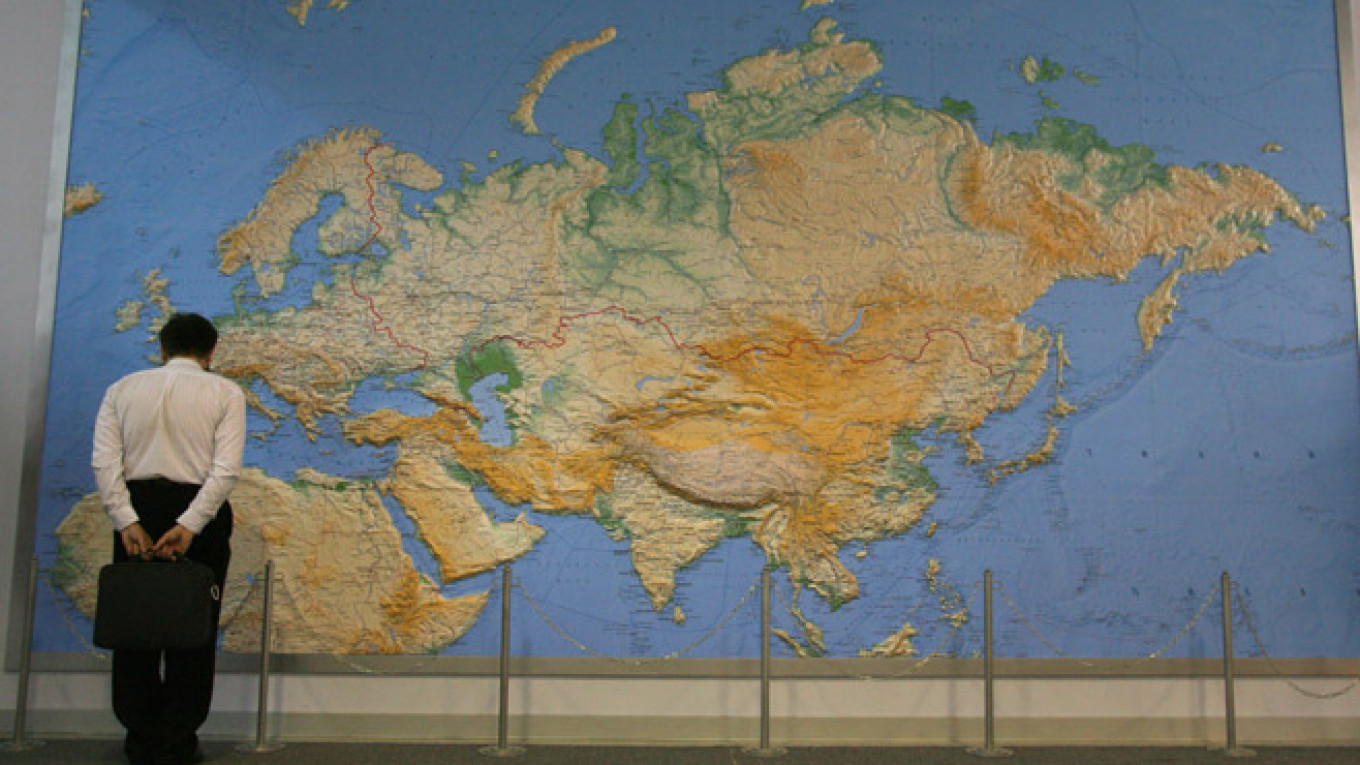Only 16 percent of Americans in a March survey could correctly identify Ukraine on a world map. Many respondents said the country is somewhere between Canada and Australia.
In August, President Barack Obama told The Economist that "Immigrants aren't rushing to Moscow in search of opportunity," while UN statistics show that 11 million migrants are already living in Russia, the second highest total in the world. Positive trends, like Russia's five years of steady population growth, are frequently ignored or discounted. It appears that Americans don't know Russia that well.
Russia's America problem starts early. The country is not of major interest for most young Americans, and even those with a desire to study Russia cannot be supported. A 2009 report estimated that only 16,500 American secondary students were learning Russian nationwide, 0.3 percent of all secondary school foreign language enrollments.
Of the estimated 400 high school Russian teachers in the U.S., many studied during the Cold War and are nearing retirement age. In higher education, the situation gets worse before it gets better. In an era of fiscal belt tightening, the U.S. government earlier this year cancelled funding for its Title VIII program, which supported advanced research in Russia and Eurasia.
Title VI funding for foreign area studies and language training continues to dwindle, along with almost all U.S. government funding for international education programs. America's Russia hands agree that their community's talent pool is shrinking.
Despite these impediments, however, the U.S. government and American entities fund the overwhelming majority of exchange and scholarship programs. The U.S. Embassy in Moscow clearly advertises some of the government's paid programs, and there are dozens of private programs still offering money to study in Russia. And while some Russian money is available to those who diligently look for it, not one of the experts at this month's World U.S.-Russia Forum could cite a Russian-funded exchange program from memory.
The Russian government wants to do more. The Education Ministry intends to raise the percentage of foreigners in Russian schools, which currently stands at 2.5 percent, to 6 percent by 2015 and10 percent by 2018. But the Education Ministry's public-facing website for government scholarships still provides outdated and vague information, and some of the material is more than 10 years old.
It is also unclear how Russia will achieve these goals when, critics argue, the country is simultaneously making it more difficult to study there.
The Russian government is expected by the end of this year to declare higher standards for foreign students hoping to study in Russia. Applicants will have to take preparatory courses in Russian language, literature and math during a 52-week period, and then pass an examination of their knowledge before being admitted to Russian universities.
It is unclear how the measure — designed to combat dropout rates and students who buy their way into Russian schools — will apply to programs taught in English.
Russian laws can also dissuade exchange organizations from operating in the country. In April of this year, the Russian government suspended the Russia operations of the American Councils for International Education, a non-profit organization that sponsors student exchanges in 60 countries. Officials cited Russia's foreign agent law for the closure. That group, however, re-registered and continued its operations.
Instead of focusing on America through exchanges at the grassroots level, Russia is investing heavily in its English-language media outlets. But many Americans are hesitant to trust the independence of Russian journalism, especially when news agencies are taken over by people with close ties to the Kremlin. Nor was Russia's image enhanced when an RT opinion host criticized Russia's actions in Crimea in March, an RT anchor resigned on the air two days later, and another RT correspondent quit in July over the MH17 information battle.
Improvements to Russia's relationship with America would be best achieved through increased attention to educational and professional exchange programs.
First, people-to-people exchanges are inexpensive, uncontroversial and successful. Second, as opportunities to study Russian language in the U.S. are incredibly scarce, Russia can provide funding that would encourage its teachers to pursue temporary assignments in America. Third, the government should not deter those pursuing English language programs in Russia with lengthy administrative hurdles, like yearlong preparatory courses.
Such investments by Russia can mature into a generation of informed American leaders, scholars and citizens with balanced views of both sides. New programs could, of course, send ordinary Russians to the U.S., but they seem to have a smaller perception problem: Russians received more than 260,000 temporary visas to visit the U.S. last year.
In the short-term world of budgetary restraint and volatile politics, it is unlikely that U.S. leaders will push for further exchanges with Russia. But if Moscow wants to positively impact its image in the U.S., it can reach to America from Russia.
Dave Kelm is a former U.S. military officer who researches Eurasian political economy at the Moscow State Institute of International Relations. He tweets from @dakelm.
A Message from The Moscow Times:
Dear readers,
We are facing unprecedented challenges. Russia's Prosecutor General's Office has designated The Moscow Times as an "undesirable" organization, criminalizing our work and putting our staff at risk of prosecution. This follows our earlier unjust labeling as a "foreign agent."
These actions are direct attempts to silence independent journalism in Russia. The authorities claim our work "discredits the decisions of the Russian leadership." We see things differently: we strive to provide accurate, unbiased reporting on Russia.
We, the journalists of The Moscow Times, refuse to be silenced. But to continue our work, we need your help.
Your support, no matter how small, makes a world of difference. If you can, please support us monthly starting from just $2. It's quick to set up, and every contribution makes a significant impact.
By supporting The Moscow Times, you're defending open, independent journalism in the face of repression. Thank you for standing with us.
Remind me later.






